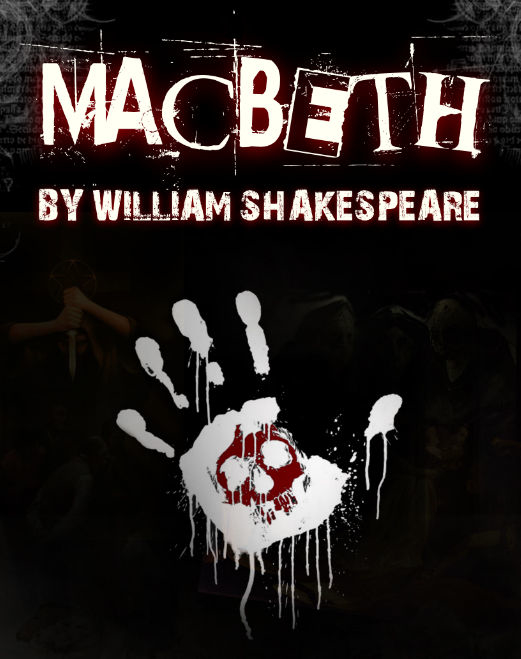Macbeth (Lost Theatre)
‘Striking and innovative, giving us an astute and intelligent new reading of the play’

David Shopland's stripped back production of Macbeth aims to reintroduce us to a story we think we already know. His programme note asks that we focus on the Macbeths as a couple, who are still raw in the grief of losing a child; yet it is the ensemble in their entirety that make this production stand out as a bold new imagining of an otherwise familiar drama.
Our three witches (Caroline Charles, Evangeline Beaven, Nathalie Codsi) are children at play, cheekily creating a makeshift world and using the other characters as toys in their imaginings. They manipulate the sparse stage through the use of minimal props – a large table and several red boxes, which are stacked to create a throne, chairs, and pillars at the children's whim. This sense of Shakespeare's play as being a playground for fertile imaginations works beautifully, the witches are endearing and disturbing as we're gripped by a growing sense of dread and unease as to how their playtime will end.
Andrew Venning is an introspective Macbeth, perhaps more Hamlet than a true soldier, but still strong and convincing as a leader grappling with both vaulting ambition and crippling self-doubt. Carmella Brown's Lady Macbeth doesn't quite hold a candle to his performance, which is a disappointing. There is a sense that Shopland's production tries to make the Macbeths more believable as a couple; but he achieves it at the expense of the very thing that makes Lady Macbeth exceptional as a character: her ruthlessness.
Shopland does however make superb use of the space. The rebels against Macbeth often meet around the edge of the stage, or enter from the back of the auditorium; there is a real and urgent sense of the rebellion as coming from out of the audience itself, taking over the on-stage action, and the effect is electrifying.
The Lost Theatre also has a fantastic upper gallery looking out over the stage, where Banquo's line of future Scottish Kings hover in uncanny masks, mocking Macbeth's futile attempts at holding onto power. Nic Farman's lighting design, paired with original music from Callum Hughes, Josh Fontana, and Sam Weston, create an eery space that works brilliantly with the play's themes of light and darkness, especially when added to the uneasy coupling of child's play and dread that the production evokes.
Macbeth's yielding at the end is unexpected, and a daring interpretation. But it gives us a stunning finale as the erstwhile King expresses his humility and admits defeat. It would be an even stronger ending if the production left it there, but we instead get the tradition final scene pertaining to the new coronation, which seems a mere formality after the intensity of Macbeth's downfall. However, this production is striking and innovative, giving us an astute and intelligent new reading of the play and all the shadows and ghosts that continue to haunt it.
Macbeth continues at Lost Theatre until 1 March 2015 – for more info click here












